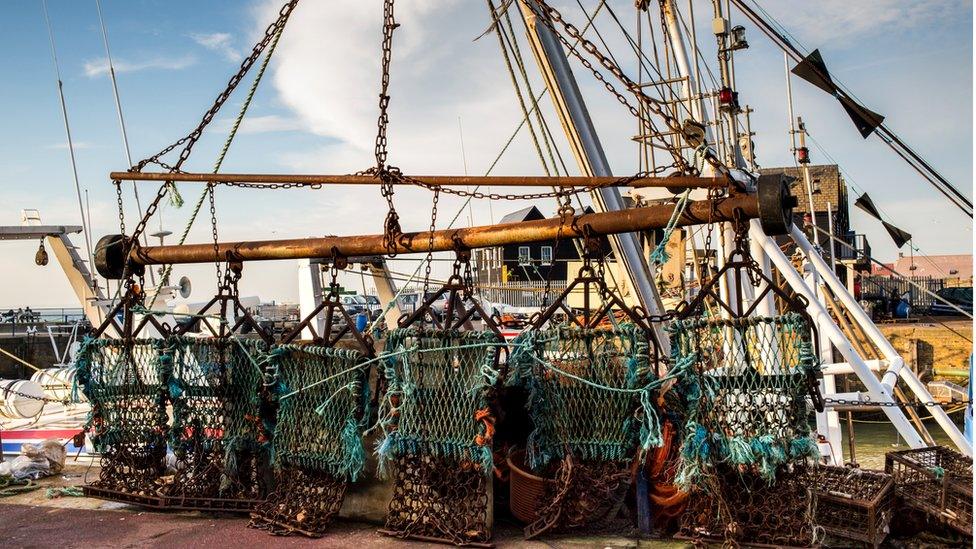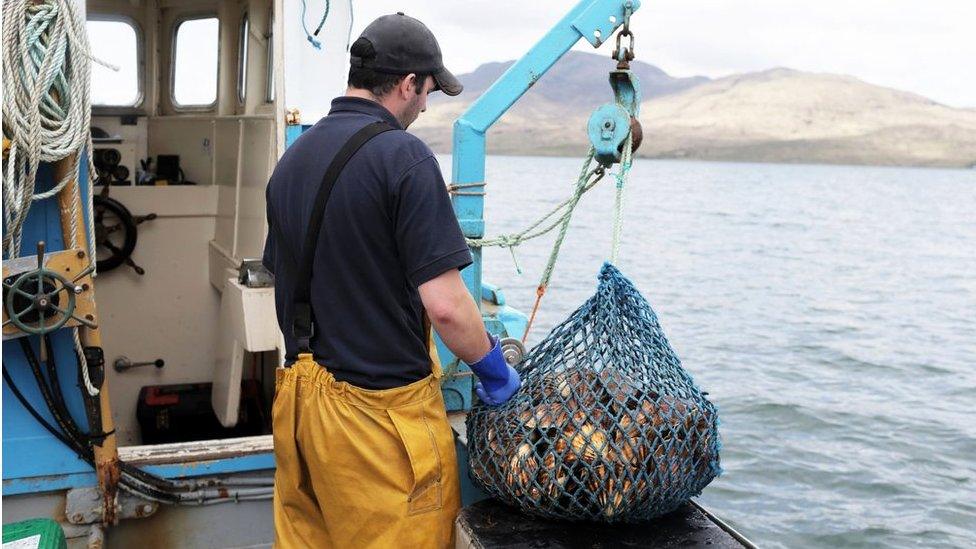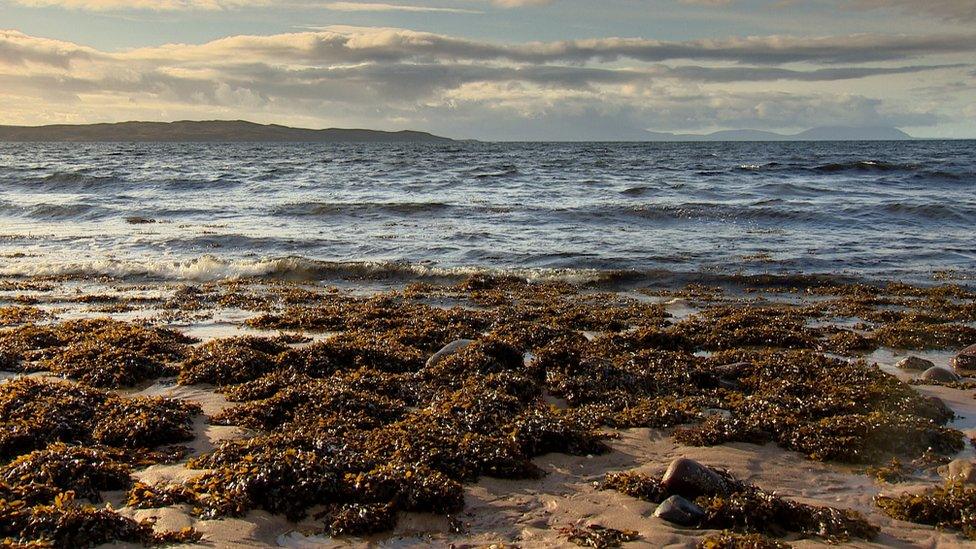Campaigners win legal bid over Scottish scallop dredging
- Published

Metal rakes or weighted nets are dragged across the seabed in scallop dredging and bottom-trawling
The Scottish government acted unlawfully when it granted licences for scallop dredging, a judge has found.
Environmental campaigners opposed to the "damaging" fishing technique took ministers to court last month.
Open Seas accused them of regulatory negligence by allowing a practice that "degraded" the sea bed.
After a Court of Session hearing, Lord Braid concluded that ministers did not consider the National Marine Plan when deciding on fishing licence policies.
The Scottish government said ministers were considering the court's decision.
A spokeswoman added: "It would be inappropriate to comment further at this time."
The environment group has used underwater cameras to record habitats on Scotland's coast.
Open Seas' lawyers argued that licensing scallop dredging and bottom-trawling - fishing methods which involve either metal rakes or weighted nets being dragged across the seabed - are unlawful where it causes damage to marine habitats.
Until 1984, bottom-trawling was banned in all waters within three miles of shoreline, but the practice is now legal in these areas.
Open Seas is campaigning for a new inshore limit to be introduced.

Open Seas is campaigning over damage cause by seabed dredging
It took legal action over a decision taken in December 2022 by Scottish government body Marine Scotland, which changed the conditions to licences for catch quotas.
Its lawyers told Lord Braid that the Marine Scotland Act 2010 placed an obligation on ministers to consider Scotland's National Marine Plan and the environmental impact on Scotland's coast line.
Lord Braid heard the ministers did not consider the legislation when they decided on their policy.
Lawyers for government told the court it had acted correctly, it did not need to consider the plan when making decisions on individual fishing licences, and its process was lawful.
However, Lord Braid ruled in favour of Open Seas saying the Scottish government had an obligation under the 2010 legislation to refer to the plan.
He wrote: "The plan is to be an integral part of the process of taking a decision."
He added: "It is hard to see how a decision can be taken in accordance with a plan, unless regard is had to that plan."
Phil Taylor. director of Open Seas, said the decision was a "major win for everyone who had campaigned to protect our seas".
But he said it was a "hollow victory" because it showed the Scottish government had been "unlawfully neglecting its legal duty to protect our seas for the last eight years".
Related topics
- Published19 May 2023

- Published14 November 2018

- Published24 April 2017
